Cancer strategy: New 10-year plan aims to cut late-stage diagnosis
- Published
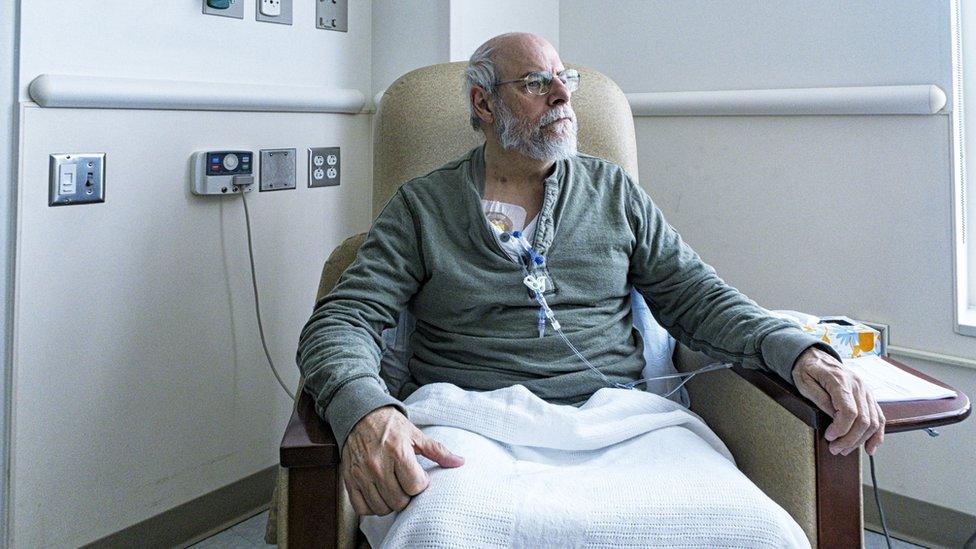
The Scottish government has published its new cancer strategy which aims to significantly cut the number of people diagnosed at a later stage.
The 10-year plan, external also intends to reduce the health inequalities associated with the disease.
About 42% of cancers are currently diagnosed at the later stages.
However, the government's ambition is to reduce the number of people diagnosed at stages three and four to 24% by 2033.
This would mean about 5,000 fewer people diagnosed with later stage disease in 10 years' time.
The strategy includes a three-year Cancer Action Plan, external that contains 136 actions.
Both plans focus on improving all areas of cancer services, from prevention and diagnosis through to treatment and post-treatment care, with a particular focus on the currently less-survivable cancers.
The Scottish government aims to reduce the number of people with late stage cancer through continued investment in the Detect Cancer Earlier (DCE) Programme.
It also hopes to tackle inequalities associated with cancer:
There is currently 20% poorer uptake of cancer screening in the most deprived areas compared with the least deprived
Those living in the most deprived areas are three times more likely to develop lung cancer
Cancer-related deaths are 74% higher in the most deprived population than the least deprived
The Scottish government also wants to improve the accessibility to services in rural and island communities.


Publishing a strategy means you get a chance to set out your vision of how to improve cancer services, but delivering these goals is a very different matter.
There's been an 11% increase in the number of people being diagnosed with cancer over the last decade, largely due to a growing older population. That requires more people to carry out and analyse diagnostic tests and more oncologists to administer treatment.
The likelihood of surviving cancer has also increased. There are so many treatment options available thanks to new medicines and technology, but that is expensive.
So there are two key challenges the health secretary will have to overcome to achieve the aims set out here; how to find more specialist staff in a world of shortages, and how to find more money when budgets are extremely tight.

Health Secretary Michael Matheson launched the plan at the Cancer Centre at Western General Hospital, Edinburgh, where he met staff delivering the Single Point of Contact service, which helps ensure patients have dedicated support throughout their treatment.
He said: "Our absolute focus is to improve cancer survival and make sure everyone gets excellent and accessible care. The pandemic had a significant impact on all aspects of health and social care, and cancer services were no exception.
"This cancer strategy will make sure we are properly delivering these vital services and clearly directing future investments."
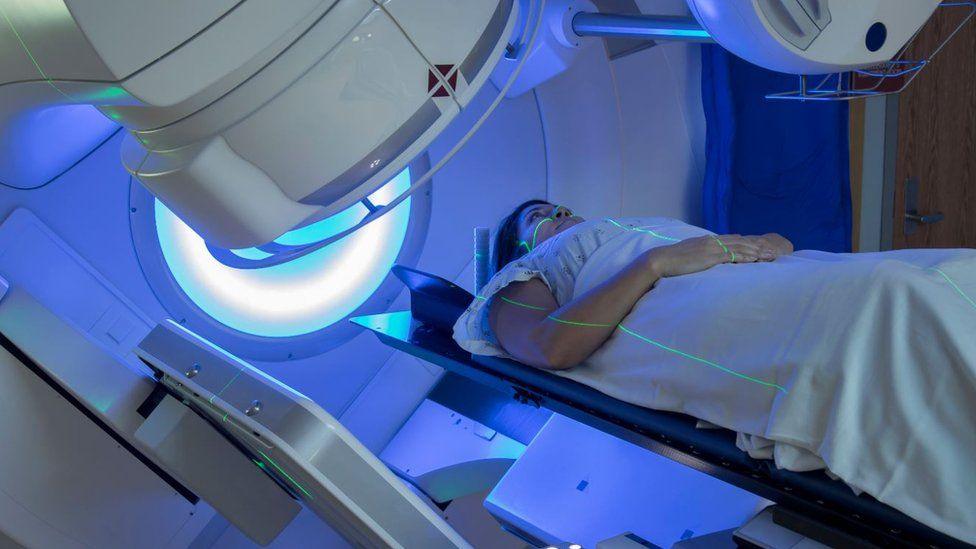
He said those who needed diagnostics and treatment would have prompt access to quality services.
"As well as being able to cure more people, we also recognise the importance of treatment to extend good quality life and the provision of excellent palliative care," Mr Matheson said.
He added that the Scottish Cancer Network would be at the heart of the Scottish government's strategic ambitions, "setting out agreed best clinical practice and assuring people with cancer of common standards of care, no matter where they live".
Dr Sorcha Hume, who chairs the Scottish Cancer Coalition and is public affairs manager for Cancer Research UK in Scotland, said: "Our NHS is under more pressure than ever, and it is our sincere hope that this strategy is the first step towards better cancer services for the people of Scotland.
"It is vital however that implementation is swift, and that the strategy is adequately funded."
'Early diagnosis is crucial'
Lorraine Dallas, chairwoman of the Less Survivable Cancers Taskforce Scotland and a director at the Roy Castle Lung Cancer Foundation, said the strategy was a big step in the right direction.
She said: "We're encouraged to see a clear commitment to taking action on those cancer types that have the poorest survival. We now need significant investment in research and action to improve cancer diagnostic and treatment services."
She added: "Early diagnosis is crucial when it comes to cancer survival. We know that less survivable cancers are far more likely to be diagnosed in the later stages of the disease and this has a significant impact on treatment options."
Related topics
- Published4 April 2023
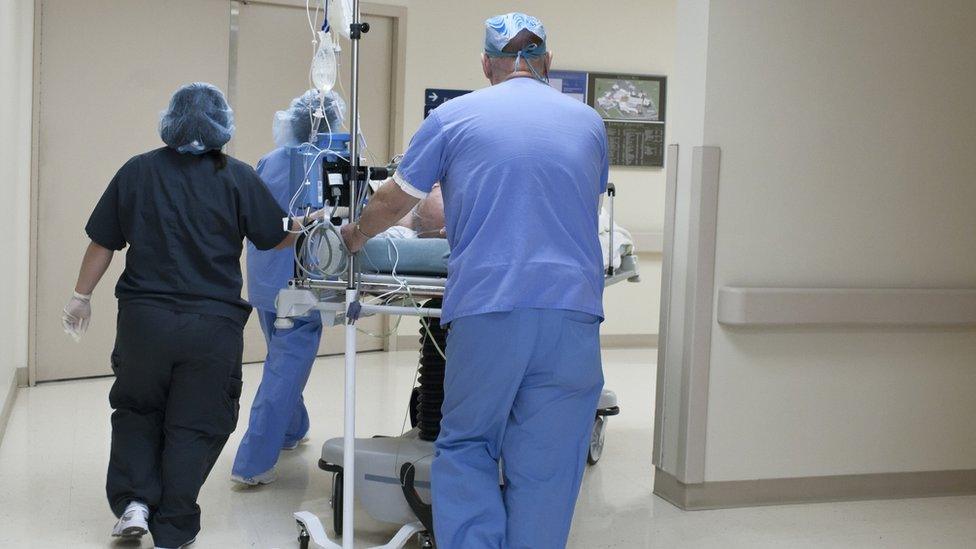
- Published28 March 2023

- Published7 March 2023
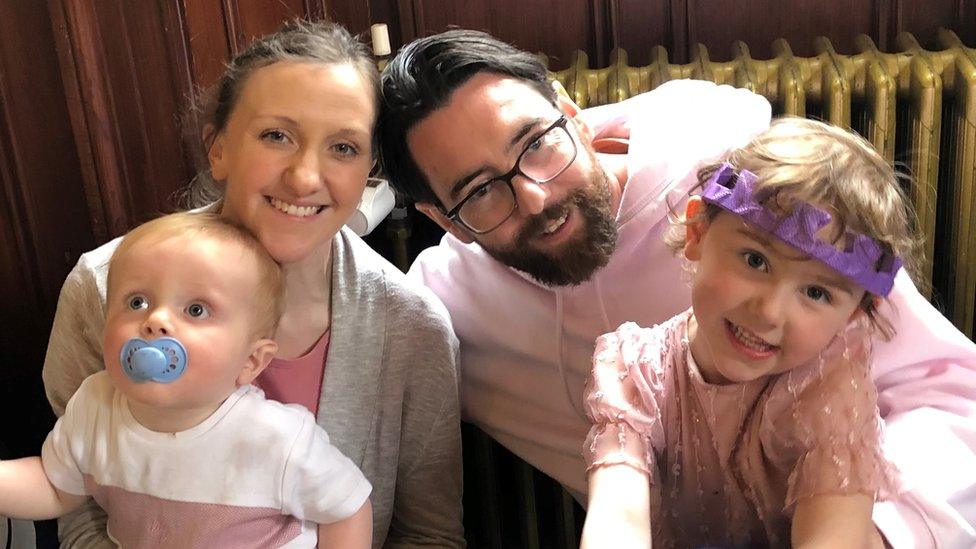
- Published3 February 2023
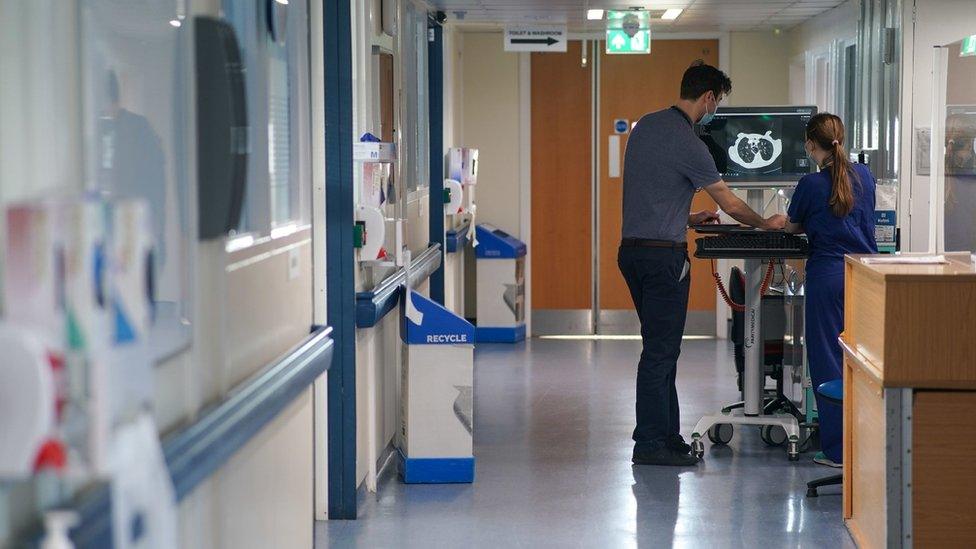
- Published28 November 2022

- Published4 February 2021
